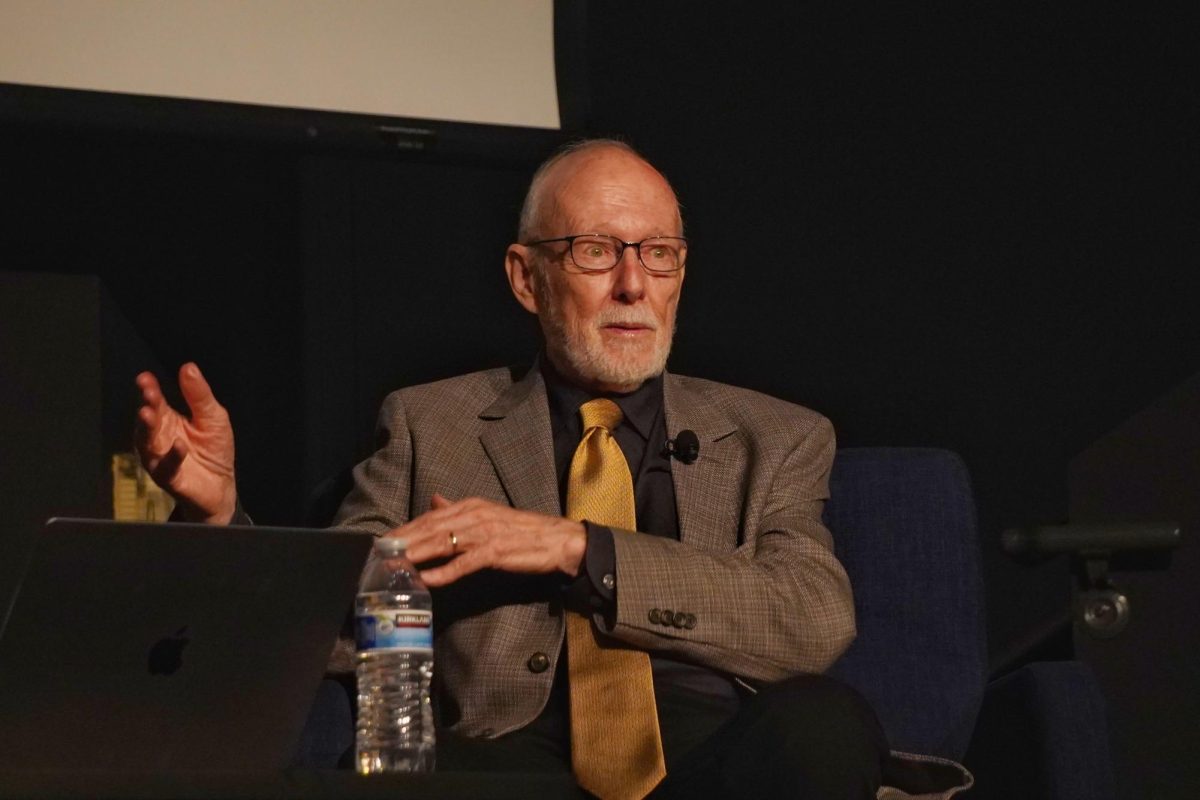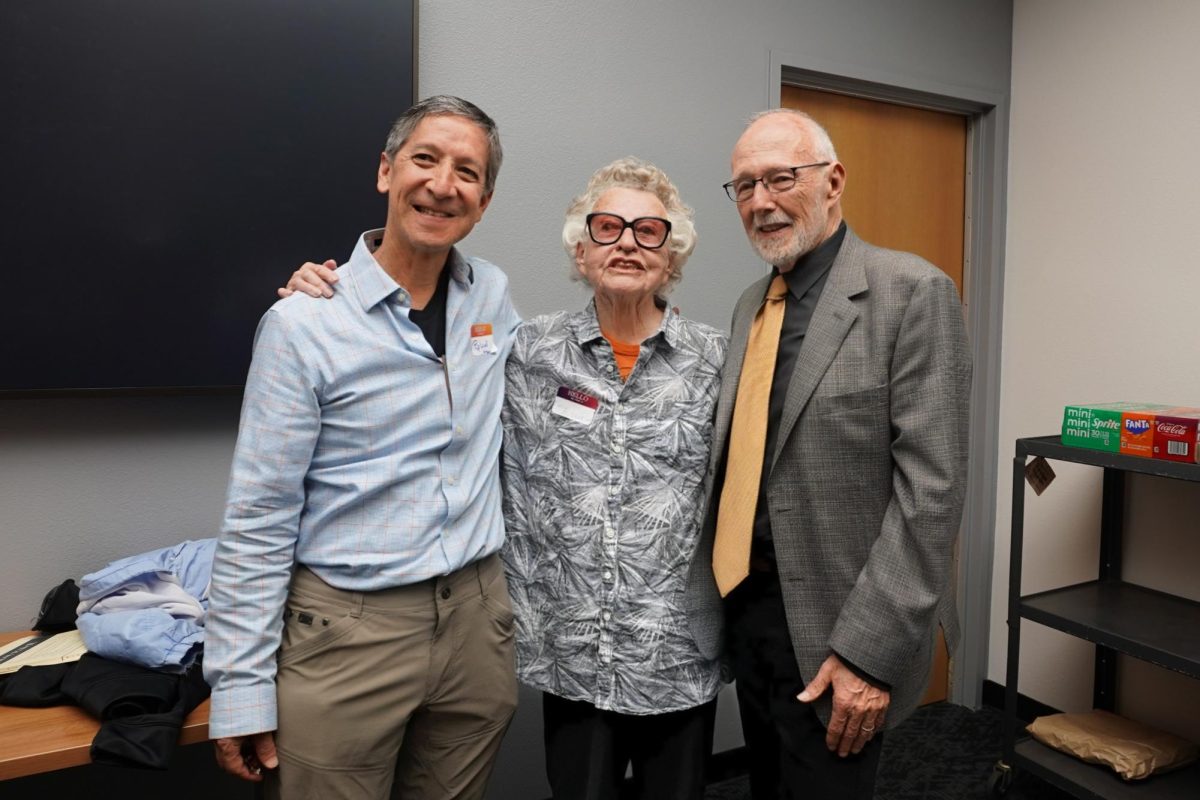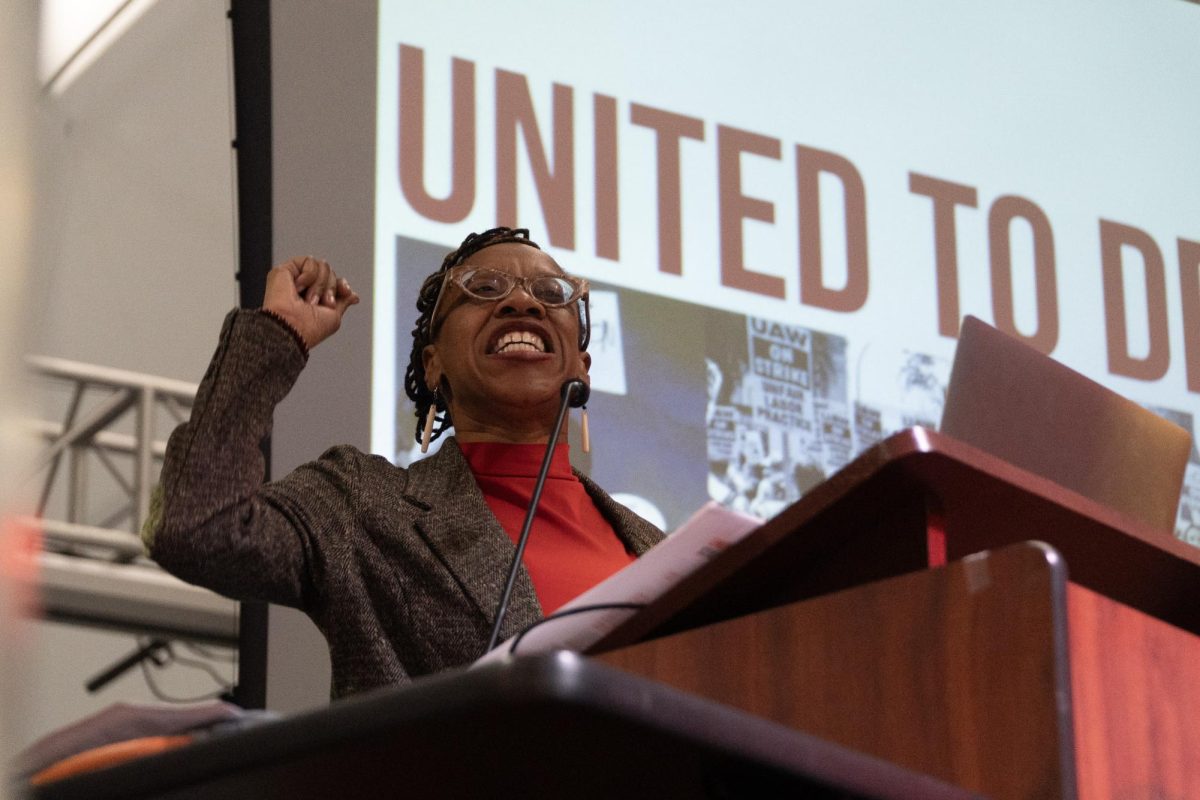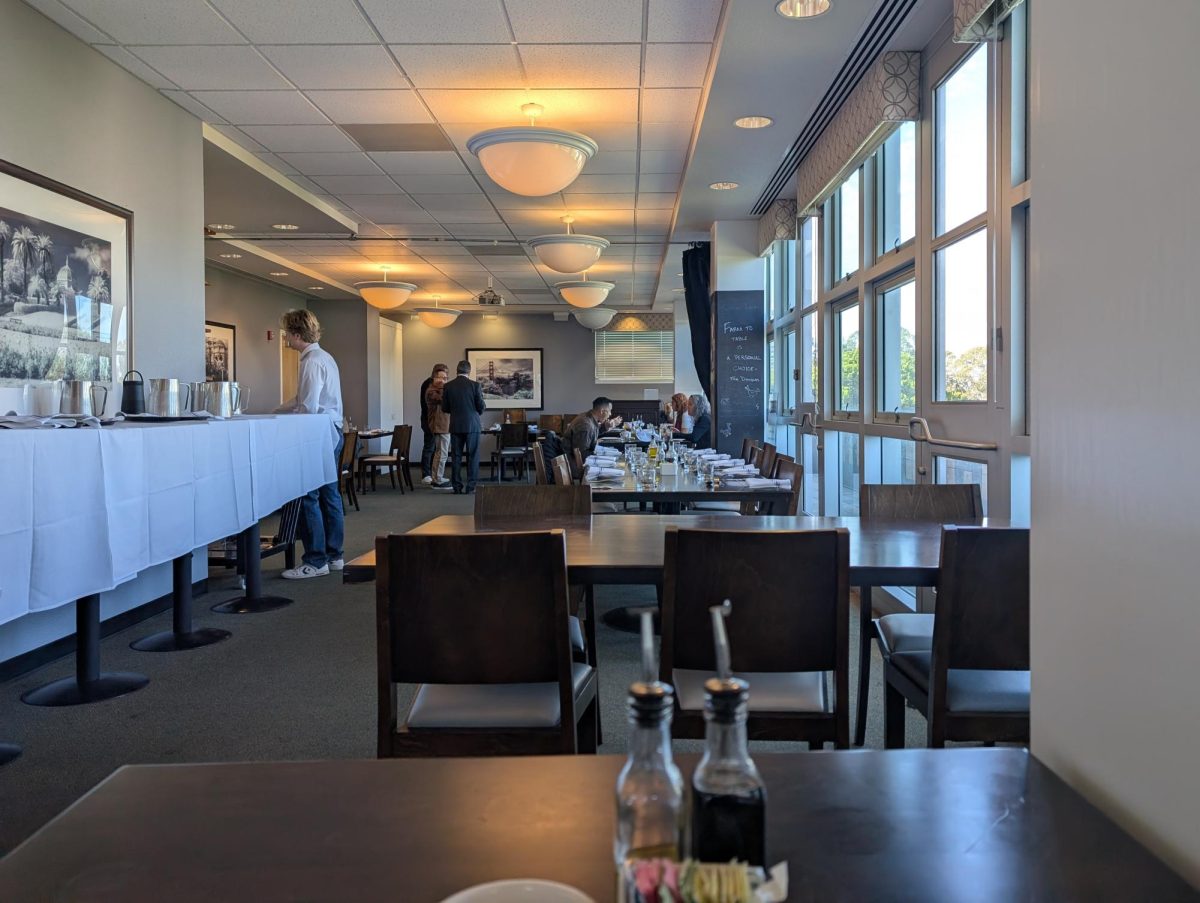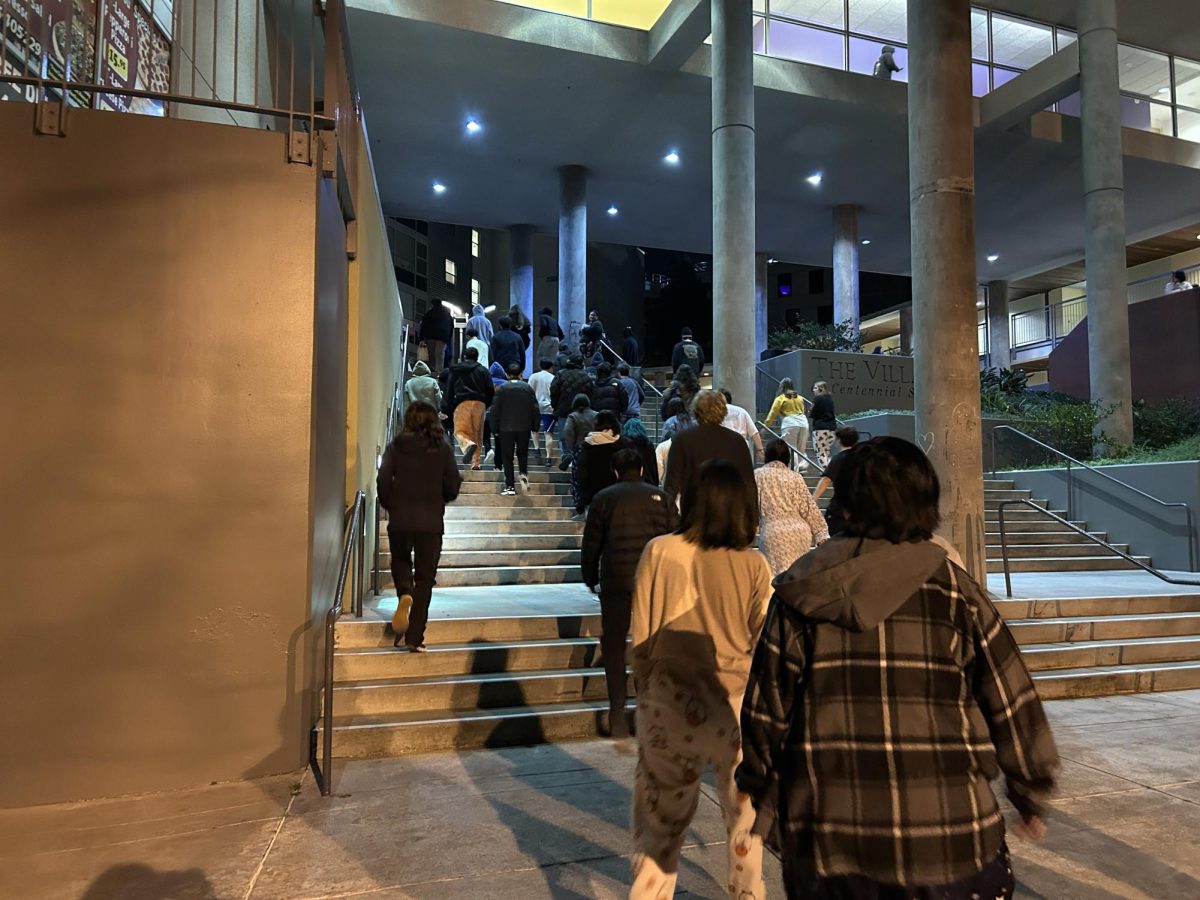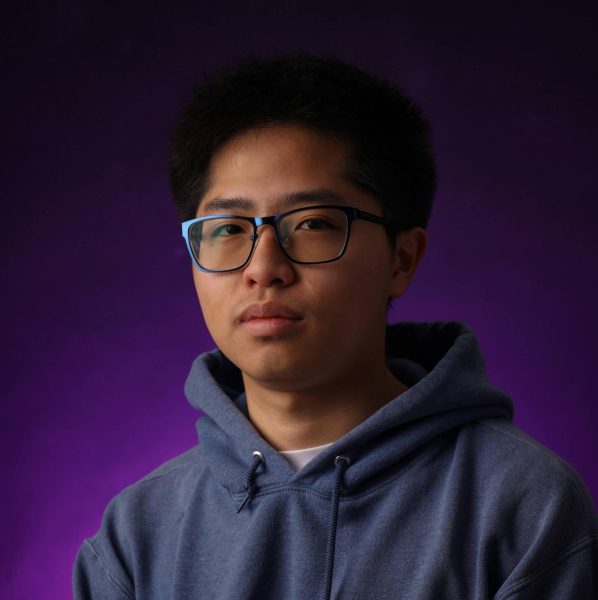In 1969, Howard Goldblatt entered the Chinese master’s program at San Francisco State College, led by the late Kai-Yu Hsu. In the program, students were required to memorize a Chinese poem. Goldblatt chose “Seeing Off a Friend” by Li Bai.
When Goldblatt returned in 1974, now as a professor, Hsu asked if he still remembered the poem and Goldblatt recited it. Later, Hsu calligraphed and gifted a scroll to him with the first five characters from the poem: “青山橫北郭,” which means “green mountains lay across the northern wall.”
On Sept. 28, about 70 guests sat in the dim Humanities Auditorium at San Francisco State University to hear from Goldblatt, now a retired professor, Guggenheim Fellow, and Chinese translator. Goldblatt’s visit was dedicated to donating various items, one of which was the calligraphed scroll.
“He wanted to send us some photographs, some really nice books, and he wanted to send something else that was so precious,” said Frederik Green, chair of the Modern Languages and Literatures department. “I had two sleepless nights because I imagined a FedEx truck on its way from Boulder to San Francisco and the scroll falling off the truck. And I said, ‘What you need is to hand-deliver this.’”
Goldblatt, who holds a doctorate, said he felt a little nervous and excited before the event. He also said he was pleased to have been invited back to SFSU, 10 years since the last time he visited.
During the event, he spoke about his life and his time at the university. Goldblatt was around 18 years old when he entered community college before transferring to Long Beach State College. Once he completed his degree, he decided to join the Navy, where he was posted in Taiwan. After being discharged, he decided to return to Taiwan because he enjoyed it so much. This time, he hired a tutor because he wanted to actually learn Chinese.
“It was as if someone turned on the light,” said Goldblatt. “I deeply fell in love with something for the first time in my life.”
After that, he wanted to attend graduate school.
“I applied to all the programs that offered graduate programs in Chinese. They all rejected me. Except one,” Goldblatt said.
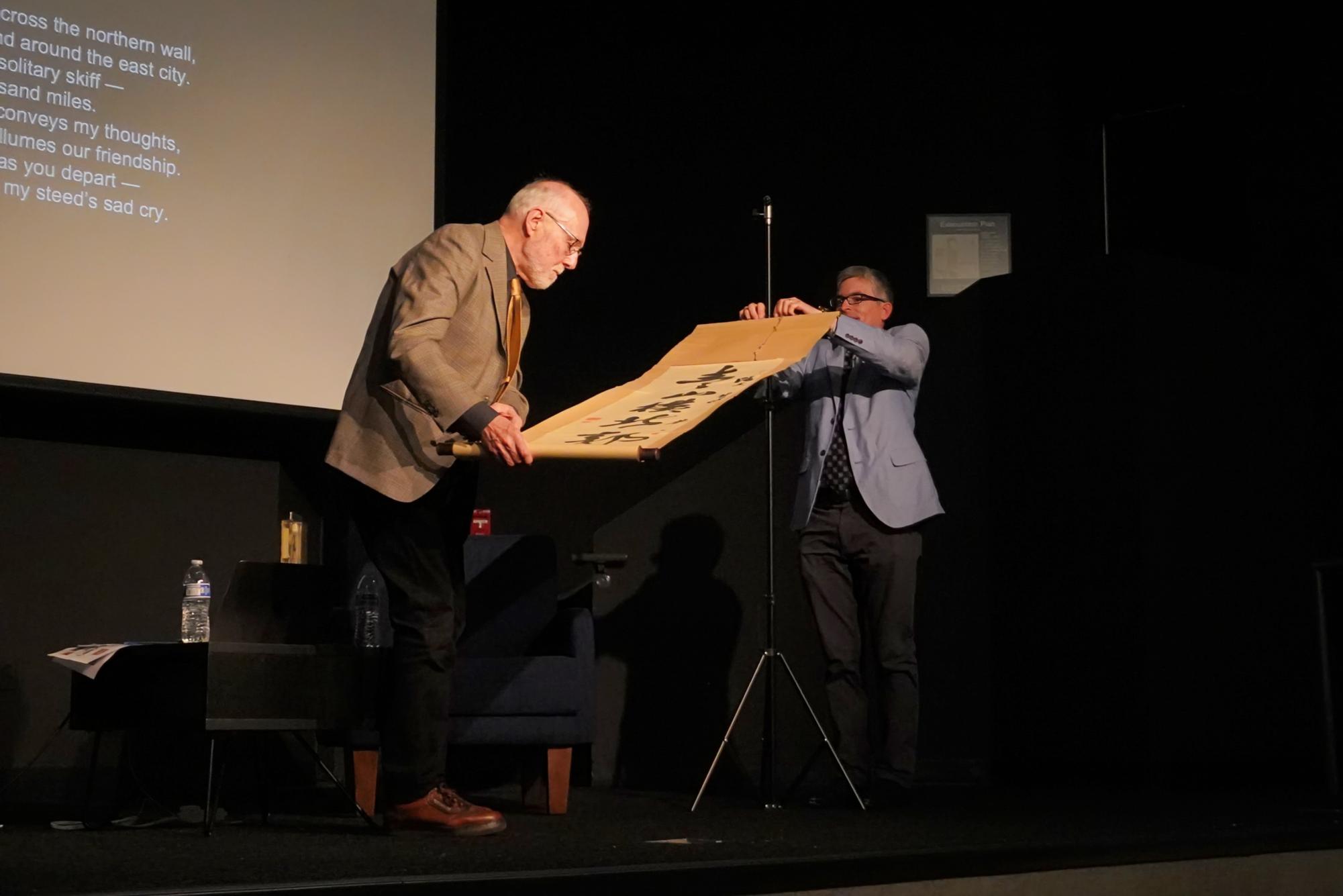
Goldblatt first met Kai-Yu Hsu when he was interviewed for admittance to the program. They continued to develop their relationship after Goldblatt became a professor.
Goldblatt said the scroll has been displayed in every home he’s lived in. According to Green, the scroll will now be stored securely in his office until a more suitable location has been located — probably the J. Paul Leonard Library.
Goldblatt has translated more than 50 Chinese authors, including Mo Yan, who won a Nobel Prize in literature and Pai Hsien-yung, author of one of the first gay Chinese novels.
During the event, Goldblatt mentioned he and Pai went to San Francisco’s Castro district, describing things to gay men to get accurate English translations.
Among the event’s attendees were Roland Hsu, the son of Kai-Yu Hsu, and Nancy McDermid, the former dean of the SFSU College of Humanities.
“The event was wonderful — a reunion and the next generation coming together for the Chinese program at San Francisco State,” said Hsu. “Howard Goldblatt represents the generation of students who came out of World War II, who maybe had no idea they’d become interested in Chinese studies, let alone Asian studies. But it was a time of opening up and with my father as faculty, having founded the program, he identified promising students and nurtured them.”
McDermid used the event as an opportunity to reunite with her former colleagues.
“Today was one of the most wondrous days of my life to see old friends, Howard, and to know that things are going on — to see Fred,” McDermid said. “But I really cried from time to time — I’m sorry because there were so many memories.”
Jeff Bissell, who’s in charge of the Chinese American International School near Stonestown, was invited by Green.
“I can’t imagine having had a better experience on a Saturday afternoon than this,” said Bissell. “I’ve known about Howard Goldblatt both from his work, but also from stories I had heard about him from professors I had years ago. And so, I came here at the invitation of Professor Green thinking that it would be a sort of a professional, kind of academic experience. And for me, it was that but it was also a sort of a life lesson in how a person can talk about a life well-lived.”
Editor’s note: This story has been updated for accuracy.




